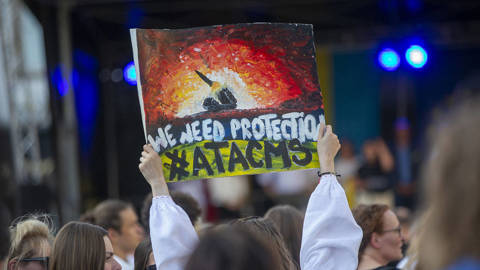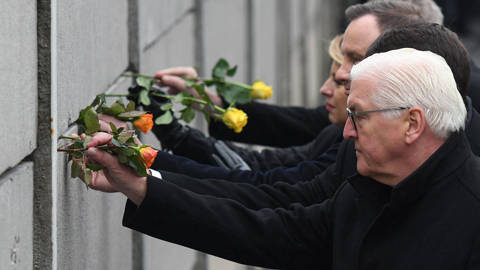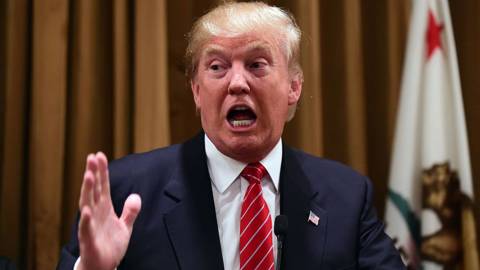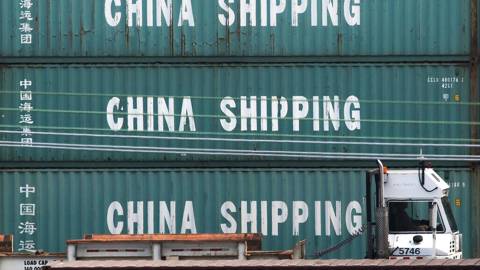After
four decades of the monologue of the “war on drugs,” the Americas open the door
for debate, breaking the taboo to discuss new approaches to dealing with this
problem. This does not mean that there is a consensus regarding the
alternatives and even less that the legalization or decriminalization are just
around the corner. This means that governments around the continent are willing
to have an open debate to either defend their approach closing the door to
explore new ways of dealing with the drug problem or to explore more effective
ways to deal with drugs in the next decades.
The
past week, foreign ministers of all of the member countries of the Organization
of American States (OAS) had their annual meeting in Guatemala – the
Forty-Third General Assembly – that focused on the problem of drugs. This
summit of the Americas concluded with the declaration “For a comprehensive
policy against the world drug problem in the Americas”, in which governments of
the region accept to continue the debate, defining a process of consultation
through different national and international instances.
Although this document does not
contain any changes to the current drug policy, it does incorporate a “new”
language to understand the problem and allows the debate to continue,
entrusting the Permanent Council to call for a Special Session of the General
Assembly – a high-level meeting - to be held no later than 2014. Is this
enough?
It is an error to think that
significant changes in drug policy can come overnight. It was not realistic to
expect that as a result of the OAS General Assembly, issues such as
legalization or decriminalization would appear into the agenda. From this
perspective, the value of the declaration is not the rupture of the current
paradigm, but the opportunity to open a discussion based on scientific
knowledge and evidence, not only on a technical level, but also on a political
level. Five years ago, this kind of space was unimaginable.
In fact it was not an easy process to reach agreement
to continue the debate. Prior to the General Assembly, in Washington D.C.,
there was an intense discussion between the countries to define the contents of
this declaration, specially the proposal of Guatemala to have an extraordinary Assembly
on drugs in 2014 to debate the current regional strategy.
Initially, a group of countries were reluctant
to the possibility of upgrading the debate from the internal bodies inside the
OAS to a high level dialogue between the foreign ministers – and even among
presidents. This is the reason why the declaration came open to Guatemala; paragraph
20th – that refers to the extraordinary Assembly - was from the beginning the
main point of discord. Bureaucratic inertia and the resistance of hard-liner
countries that feel comfortable with the current policy and reject fundamental
changes were the main obstacles challenging advancements in the debate.
In the middle of the discussion of the
declaration, the Secretary General of the OAS delivered to the president of
Colombia, Juan Manuel Santos, the “Report of the Drug Problem in the Americas”,
commissioned by Latin American countries during the last year’s Summit of the
Americas in Cartagena, 2012. For the first time since the “War on drugs”
started, a multilateral institution critically analyzed the drug policy and
considered new approaches like decriminalization – especially of marijuana. The
OAS study proposes four possible scenarios for future drug policy. Fortunately,
as former Latin American Leaders stated in an open letter, “…none of the
scenarios call for the status quo”. Without making recommendation, the OAS
report reinforced the idea proposed by Guatemala weeks before regarding the
necessity to continue the debate to think on a more effective strategy.
At the end, despite the observation of some
countries, including the United States – look at the footnote 4 of the
declaration –, under the leadership of the Guatemalan Foreign Ministry,
Fernando Carrera, the General Assembly concluded with a declaration that
includes the Special Session of the
General Assembly and other instances to discuss drug policy. Randal C.
Archibold wrote in the New York Times “The United States was among the
countries that agreed to keep the dialogue but behind the scenes scoffed at
another foreign-minister-level discussion on drugs…” That is true, but only five
years before, these countries did not even tolerate to discuss the issue and
closed any possibility to have an open debate regarding drug policy.
The drug policy
debate now has a “new” language that will set the tone of the discussions. The
declaration of Antigua recognizes the different needs and realities of each
country, opening the door to consider new approaches based on scientific
knowledge and evidence, calling to the full respect of human rights and
fundamental freedoms, and also urging to adopt alternatives to incarceration - establishing
penalties that are reasonable and proportionate to the severity of the crime.
Now the question is how these principles and
concepts will be developed in each country. Hopefully well, as countries
adopted the "war on drugs" as a dogma several years ago, now they
should adopt the need for a comprehensive policy based on respect for human
rights with the same conviction. For now, in most of the cases, national
policies and responses to the drug problem are far from the international
speeches. President Santos, talking about the war on drugs stated, “Sometimes
we all feel that we have been pedaling on a stationary bicycle. We look out to the
right and left and we still see the same landscape”. This is the moment to leave
the bicycle and based on the experience from the last decades determine which scenario
we want to start walking to a better and more effective direction.









After four decades of the monologue of the “war on drugs,” the Americas open the door for debate, breaking the taboo to discuss new approaches to dealing with this problem. This does not mean that there is a consensus regarding the alternatives and even less that the legalization or decriminalization are just around the corner. This means that governments around the continent are willing to have an open debate to either defend their approach closing the door to explore new ways of dealing with the drug problem or to explore more effective ways to deal with drugs in the next decades.
The past week, foreign ministers of all of the member countries of the Organization of American States (OAS) had their annual meeting in Guatemala – the Forty-Third General Assembly – that focused on the problem of drugs. This summit of the Americas concluded with the declaration “For a comprehensive policy against the world drug problem in the Americas”, in which governments of the region accept to continue the debate, defining a process of consultation through different national and international instances.
Although this document does not contain any changes to the current drug policy, it does incorporate a “new” language to understand the problem and allows the debate to continue, entrusting the Permanent Council to call for a Special Session of the General Assembly – a high-level meeting - to be held no later than 2014. Is this enough?
It is an error to think that significant changes in drug policy can come overnight. It was not realistic to expect that as a result of the OAS General Assembly, issues such as legalization or decriminalization would appear into the agenda. From this perspective, the value of the declaration is not the rupture of the current paradigm, but the opportunity to open a discussion based on scientific knowledge and evidence, not only on a technical level, but also on a political level. Five years ago, this kind of space was unimaginable.
In fact it was not an easy process to reach agreement to continue the debate. Prior to the General Assembly, in Washington D.C., there was an intense discussion between the countries to define the contents of this declaration, specially the proposal of Guatemala to have an extraordinary Assembly on drugs in 2014 to debate the current regional strategy.
Initially, a group of countries were reluctant to the possibility of upgrading the debate from the internal bodies inside the OAS to a high level dialogue between the foreign ministers – and even among presidents. This is the reason why the declaration came open to Guatemala; paragraph 20th – that refers to the extraordinary Assembly - was from the beginning the main point of discord. Bureaucratic inertia and the resistance of hard-liner countries that feel comfortable with the current policy and reject fundamental changes were the main obstacles challenging advancements in the debate.
BLACK FRIDAY SALE: Subscribe for as little as $34.99
Subscribe now to gain access to insights and analyses from the world’s leading thinkers – starting at just $34.99 for your first year.
Subscribe Now
In the middle of the discussion of the declaration, the Secretary General of the OAS delivered to the president of Colombia, Juan Manuel Santos, the “Report of the Drug Problem in the Americas”, commissioned by Latin American countries during the last year’s Summit of the Americas in Cartagena, 2012. For the first time since the “War on drugs” started, a multilateral institution critically analyzed the drug policy and considered new approaches like decriminalization – especially of marijuana. The OAS study proposes four possible scenarios for future drug policy. Fortunately, as former Latin American Leaders stated in an open letter, “…none of the scenarios call for the status quo”. Without making recommendation, the OAS report reinforced the idea proposed by Guatemala weeks before regarding the necessity to continue the debate to think on a more effective strategy.
At the end, despite the observation of some countries, including the United States – look at the footnote 4 of the declaration –, under the leadership of the Guatemalan Foreign Ministry, Fernando Carrera, the General Assembly concluded with a declaration that includes the Special Session of the General Assembly and other instances to discuss drug policy. Randal C. Archibold wrote in the New York Times “The United States was among the countries that agreed to keep the dialogue but behind the scenes scoffed at another foreign-minister-level discussion on drugs…” That is true, but only five years before, these countries did not even tolerate to discuss the issue and closed any possibility to have an open debate regarding drug policy.
The drug policy debate now has a “new” language that will set the tone of the discussions. The declaration of Antigua recognizes the different needs and realities of each country, opening the door to consider new approaches based on scientific knowledge and evidence, calling to the full respect of human rights and fundamental freedoms, and also urging to adopt alternatives to incarceration - establishing penalties that are reasonable and proportionate to the severity of the crime.
Now the question is how these principles and concepts will be developed in each country. Hopefully well, as countries adopted the "war on drugs" as a dogma several years ago, now they should adopt the need for a comprehensive policy based on respect for human rights with the same conviction. For now, in most of the cases, national policies and responses to the drug problem are far from the international speeches. President Santos, talking about the war on drugs stated, “Sometimes we all feel that we have been pedaling on a stationary bicycle. We look out to the right and left and we still see the same landscape”. This is the moment to leave the bicycle and based on the experience from the last decades determine which scenario we want to start walking to a better and more effective direction.